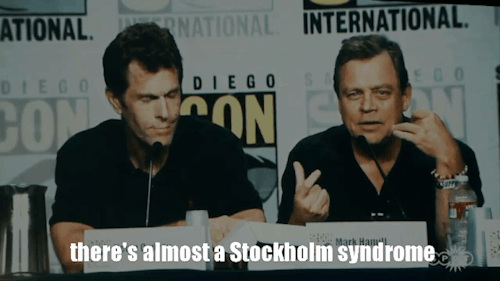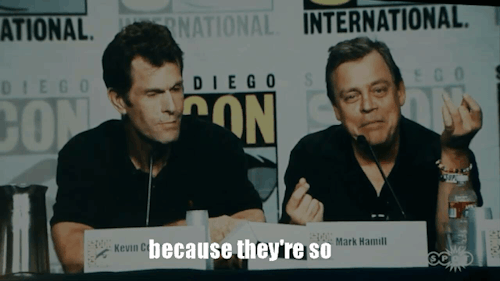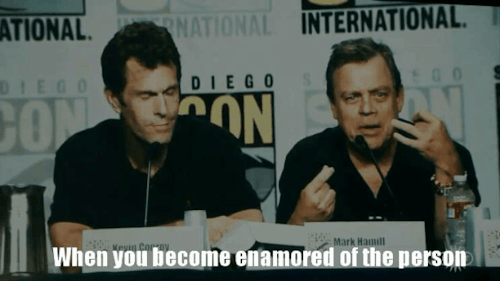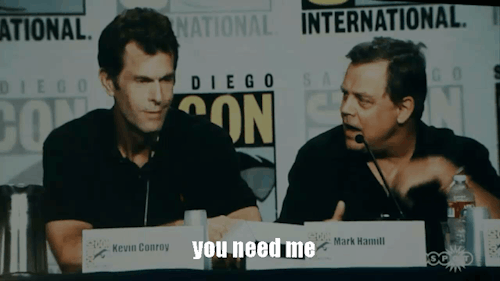
oddly-something
I have no idea what I'm doing. 16. he/him
102 posts
Latest Posts by oddly-something
If you ask me, a pack of wild dogs is the most iconic thing to be torn apart by
William Finn's ability to write about human imperfection was so sincere, profound and succinct. It has not and will likely not ever be replicated. I am reminded of such simple lyrics like
'This here is love, when we're talking face to face' or 'God only knows too soon I'll remember your faults, meanwhile though it's tears and schmalz'
He is, to me, the composer that best understood the humanity that lies in making mistakes.

I recently got my hands on a pre-shooting draft of a Talented Mr Ripley screenplay so here is my first Tumblr post!
It has all the deleted scenes that you can see remnants of in the movie's trailers and set pictures. I've put it on internet archive in case any of the other three people in the fandom wanted to have a read.






writing is just staring at a blank document thinking, “this is the year i revolutionize literature,” while frantically googling synonyms for “walked.”




matt damons back mustve hurt after being in the rainmaker, good will hunting, saving private ryan, dogma, talented mr ripley, jay and silent bob strike back, and oceans eleven in the span of 4 years like thats TOO MANY BANGER MOVIES!!! calm down sir!!!!!!!!!!
Alain Delon (1935 - 2024) in the movie "Plein soleil" (english Titel: "Purple Noon"), 1960, after the novel "The Talented Mr. Ripley" from Patricia Highsmith.
hands down 1999 was the best year for cinema
The Talented Mr. Ripley is the the most homosexual movie I’ve ever seen

ripley the terrible
Hey when you guys say something is for Patti, and Tina, and Yoko, Aretha, and Nona, and Niko can you include me in that too? Patti, and Tina, and Yoko, Aretha, and Nona, and Niko, and me if it's not too much to ask
ughhhhhhh i love you falsettos i love you in trousers i love you hedwig and the angry inch i love you my own private idaho i love you i love you everything sucks i love you the new normal i love you i love you the prom i love you adamandi i love you fun home i love you angels in america i love you queer media and the emotions you make me feel
having poor circulation is great because people will touch your hand and go 'oh! you're so cold!' and for a moment you get to experience what it's like to be a vampire in a romance novel
Being a stem person who's best friends with an art person is great because you'll tell them "oh I have to mix these chemicals and analyze data for tomorrow" and they'll think it's the worst thing ever. Meanwhile they have to draw 8 portraits and master frottage and collage by tomorrow and you think that's the worst thing ever

Slurpin isopod (gouache on canvas)
Commissioned by @franzanth

Its this
character misses their shot and the villain goes "ha! you missed." and the main character goes "did i?" and then shoots the villain again while they're frantically looking around the room for what the hero could possibly have aiming for instead



I never did get to show her…
Why did batman save joker's life numerous times? Yes he also left him to "die", but he did so knowing that he would survive, and yet it seems nonsensical to save joker when it would almost free the world from a lot of suffering, he could simply actually leave the joker to be killed but he refuses to. Its actually very funny, what is batman excuse to THAT?
In all fairness, Batman has saved the lives of the other Rogues too, when he could've just let them die -- though indeed none as frequent as Joker. There are many examples of it, ranging from low-level thugs (e.g., Batman: Shadow of the Bat #30) in the employ of more major Gotham villains, to the A-listers themselves. Bruce has saved Riddler's life (e.g., Batman Confidential: #26-28), he's saved Freeze's life (e.g., Detective Comics #1013), Catwoman's (obviously; e.g., Batman: Heart of Hush), Scarecrow's (e.g., Batman: Legends of the Dark Knight #141), Black Mask's (e.g., Batman #519)... and so on.
So, what exactly makes Joker different? I'll put my explanation under the cut, for the health of everyone's dash, as always.
As we all know, Bruce has a sacred pattern. If someone is in direct danger of dying, he saves them. It does not matter who it is, criminal or innocent. It's an emotional compulsion rather than an ethical choice: when Bruce saves someone, he's saving his parents, in all the ways he was too weak to as a child. However, life is never that simple. When Bruce has to save criminals he despises, he expresses how much he hates that he does it; except that his need to save life, to overwrite the trauma of his childhood, is bigger than the hatred he holds for all evildoers. (Though not always. As I mentioned in my previous answer going over Bruce's no-killing rule, certain circumstances can stifle his need to save just enough for him to leave someone in mortal danger -- but there have to be enough degrees of separation so he can justify it.)
So, him saving Joker's life, no matter the circumstances, is genuinely driven by his no-killing rule and his core compulsion to save people. It's not just an excuse. Joker knows this... Hell, everyone knows this. It's something many villains take advantage of in their fights with Batman. Make him choose between chasing the perpetrator and saving an innocent life, and bam; he saves the innocent life, you get the time to escape.
But is Joker just part of the pattern? Is it just unfortunate that Joker's life needed to be saved so many times? Aaaaand... here's where the funny (tragic?) part comes in, because obviously, the answer is no. It's one thing that Bruce refuses to let anyone die, it's one thing that he's saved Joker more times and more passionately than anyone else -- but the thing is, he's saved Joker to the detriment of innocents. And this is where his no-killing rule becomes an excuse, as you call it, rather than the truth.
The Joker: Devil's Advocate has Joker condemned to death by law, but because it's for the one crime he didn't commit, Bruce goes nuts trying to save Joker's life.

It's a flimsy excuse, because Bruce breaks laws left and right, by his own admission; it's always about justice, not the rules. And yet now the law matters? Bruce very well knows Joker is guilty. He might not have committed this crime, but he's done all the others before it, and he deserves to die for those ten times over. Why not let justice follow its course, when so many innocent lives would be saved by having Joker gone (not to mention how many avenged)? You can't even argue it's about Bruce's compulsion to save lives, because I don't remember him trying to save every single criminal put on death row.
Interestingly enough, Bruce then justifies it differently towards Alfred and Tim:

Huh. You mean that you can't let Joker take the fall for this crime first, and then use the evidence you collect because you 'loathe mysteries' so much (a valiant effort on Alfred's part to justify Bruce's behavior, tbh) after, to bring the real killer in? It's not even like he'd have to wait long...

So, Bruce can't let Joker die for a crime he didn't commit because it's against the law. Then, he can't let Joker die because it allows for the real criminal to go free, and that would kill innocents. But also, his detective mind just craves solving the case so badly, and that's the reason he's doing this.
First excuse was dismantled by Gordon himself. Second excuse still does not explain why he's so urgently trying to solve the case, before Joker's death day comes around. Third excuse explains it even less, because he can just solve the case, sate his curiosity, save the innocent lives and stop the criminal-- and not hand in the evidence to save Joker's life. Just hand it in a minute later!


And here we have the fourth excuse, which actually goes against what he told Gordon. Bruce tells Joker himself that it's about justice. All different reasons, and some of them contradicting each other! But finally, the narrative directly calls him out on simply caring, where before we get comments from other characters ("I have never seen him look so... grim," says Tim. "He hasn't slept in days," says Tim.)
It truly is quite funny to me how all of Bruce's justifications don't manage to explain how desperate he is to beat the clock, don't manage to cover up the fact he's solving the case to save Joker's life; not to protect innocents, not to abide the law, not to sate his detective instincts. And if there's still any shred of doubt that Bruce is doing this for utterly selfish reasons, this is what Bruce does after he manages to get Joker pardoned literally seconds before he gets fried in the electric chair:

The comic is full of Joker's victims advocating for him dying! Full of people asserting how Joker deserves to die, because of the people he's killed, and because of how many people will die if he keeps living. And yet, after all of that, Bruce goes to Joker's cell to brag to him that he owes his life to Batman. Unhinged! Unhinged, your honor! You can't really explain Bruce in this comic in a way that makes sense without admitting that Bruce is personally invested in Joker, and that's that.
Which leads me to the most bonkers example of him choosing Joker over someone else... Batman: Under the Red Hood.


(Fucking hell, Bruce. At least go to Jason and try to help stop the bleeding.)
Just for comparison's sake. Here's Bruce stepping away and allowing for Jim Gordon to potentially kill Joker after he murdered Sarah Essen-Gordon, but then Jim shoots him in the leg (Detective Comics #741):


What is the difference between these two instances? Why didn't Bruce let Jason shoot Joker -- arguably, someone much closer to him, someone who's like a son to him, someone who Joker killed?
It's because Jason would've shot Joker for sure. When it comes to Jim, Bruce trusts that he has the same code as himself; even in The Killing Joke, after Joker crippled his daughter, Jim told Bruce that he wanted everything done "by the book." Bruce knew that in letting Jim point a gun at Joker, the risk to his life was unlikely. However, none of this applies to Jason. Jason would have 100% pulled the trigger. It's the same as Devil's Advocate; Joker's death was a certainty, not a risk or a possibility. And in those circumstances, Bruce chooses Joker in spite of everything else. He endangers the life of his adopted son by slitting his throat (actually, it's more or less canon he actually killed Jason) to save the life of the man who murdered him. (...Look. I ship Batjokes, but I also like the Batfam and Jason especially, and this makes me feel so bad for him it's insane. Sometimes I think about RHatO #25 and Batman & Robin #20 and really wish I could punch Bruce in the face. I say this as a Bruce fan.)
And here you have it, anon. Yes, it is nonsensical for Bruce to keep saving Joker, especially within this specific set of circumstances, and especially because of how many lives are lost because of it. It's nonsensical because, underneath the surface of the no-killing rule, it's due to selfish emotional attachment. Like I said elsewhere, Bruce is just as obsessed with Joker-- he's just better at hiding it.



“When Insects Rule the World” series by Bill Mayer








ok but seriously why is “much older internet friend uses you as their personal suicide hotline” such a universal experience for kids on the internet. fyi for any kids/teens following me if an adult tries to make you be their therapist just flat out block them you dont have to explain yourself or try to reason with them and ur not responsible for their mental well-being. just block them







the people wanted more youtube worldbuilding ^^
previous post
tumblr is for putting your stuff somewhere that's not secret but also not for anyone particular to see so it's true neutral in a really nice way





Batman Arkham City panel.

